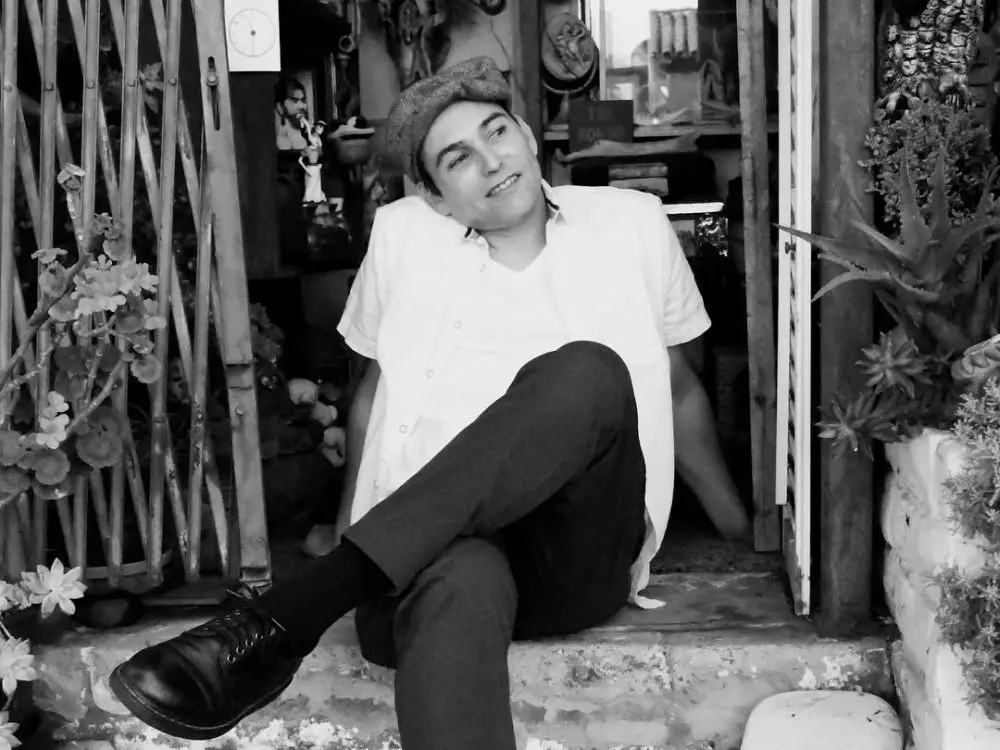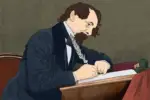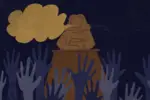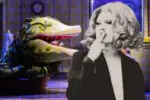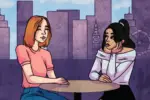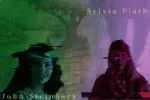When I was working at the community college in Santa Barbara as a Spanish tutor, I met a student who happened to be a journalist and a writer. He looked like a member of a punk rock band, but he seemed like he had lived through some stuff, like he knew something the other people in class didn’t. He was a misfit — a black sheep in the class –– and so naturally I gravitated toward talking to him. His name was Jon Vreeland. Our conversation led to a shared passion about literature and music and that brought him to talking about different authors that had inspired him such as Charles Bukowski, John Fante, William S. Burroughs, Ernest Hemingway, Allen Ginsberg and Lewis Carroll.
Vreeland was working on a memoir called “The Taste of Cigarettes” when I met him. He was writing about his life during a time when he was addicted to heroin. I immediately thought about the relationship rock stars and other artists had for the drug, with many succumbing to death. Yet, here was this guy, two years clean trying to make art out of his years of struggle.
I thought it was crazy, something I only saw in movies since I lived completely detached from that type of reality. But thinking back on it, it opened a window of understanding for me. I immersed myself into the life of the authors that he mentioned to me and I was able to feel the drunkenness in the pages. I could feel defeat and agony, but they were honest. They were naked and raw, and they fought against life one word at a time.
When Vreeland’s first book came out, I thought it was weird to know someone, in the flesh, who had written a book. I never met a writer before and I thought that it was surreal. I discovered that it was an easy read. The words flowed and the pages kept turning. I reminded myself of his influences and the writers that he mentioned to me. I felt Vreeland’s mood in his writing. But most importantly, I saw an original person writing from a space of honesty. It reminded me that writers are not objects or figures to attach to books; instead, they are real people with problems. They are just like anyone else, fighting for something.
My Own Experience With Literature
When I was growing up and didn’t know much about literature, I never understood any stories meant for children. I thought about writers as historic figures: There was William Shakespeare, James Joyce, Mark Twain, Hemingway and Miguel de Cervantes, but they were only objects or caricatures. I never read their novels, but there was always a sense of awe toward them. I noticed professors claiming pride upon reading them and pretending to be intellectuals. I also noticed how I quickly became detached from literature. It all seemed pedantic in a way, but I never found the courage to open those books.
Things changed when I became interested in film. For some reason, it spoke to me during a period of my life when I was looking for answers and discovering my identity. The first movie that blew my mind was “2001: A Space Odyssey” by Stanley Kubrick. I saw it when I was 10 years old and didn’t understand it. But when I rewatched it at 15, it dictated a new frequency of existence — there was no turning back after that.
The next movie that made an impact was “Taxi Driver” by Martin Scorsese, and I could say that this movie found me. It opened my mind to the world of literature again. The internal monologues of the protagonist, Travis, played by Robert De Niro, seemed to speak from a place of brutal honesty. The movie is a masterpiece, but the script has a big impact on why the movie is so great, I thought.
This inspired me to read some novels by Stephen King including “The Langoliers,” “Salem’s Lot” and the “Dead Zone.” Each of these books gave me a better idea of how easy it is for certain stories to live on in your memory. Then I read Orwell’s “1984” and “Animal Farm,” both excellent pieces of writing. When I read “Brave New World” by Aldous Huxley, I felt as if I had found someone. I thought I could talk with Huxley about things that bothered me. I identified myself with him and so I read almost all his work. This gave me great pleasure — to find happiness in literature and to do it for the sake of being happy. I wasn’t doing it to impress others or to look intellectual.
Some Key Points I Learned From Vreeland
When there’s no struggle, there’s no progress. By progress, I am referring to the notion of overcoming an obstacle, and in this case, it is Vreeland’s heroin addiction. I think that when it comes to art or almost anything worthwhile in this world, there needs to be struggle. If you never know what struggle is, you will be confused in life because you will never understand what true progress is. Dostoevsky said in “Crime and Punishment” that “the darker the night, the brighter the stars, and the deeper the grief, the closer is God.”
Take it as you may, but this quote resonates with me. It gives me the understanding that you need to face pain and struggle. I’m not saying that you need to do drugs. What I’m saying is that whatever your obstacle is, you need to face it, instead of escaping it. Running away from pain and struggle is the antecedent of a meaningless life.
Success Comes From Your Lifestyle
When I used to visit Vreeland in his apartment, he told me he had a routine. He woke up early in the morning and started writing for three or four hours straight before heading off to work and school. After this, he read some fiction and poetry in his free time, allowing for more time to read before heading off to bed.
He told me that he was reading the authors that he wished to mirror in his writing. I thought he was trying to get their styles and emulate them, but later I found out that he was taking their souls. Yes, I think the writer’s soul live in their books, metaphorically speaking. I found the rhythm, mood and passion of his favorite writers represented in his memoir. But I also found the blossoming of a new voice that came from those influences and, most importantly, his experience.
Success is not a place you can get at so easily. It is not a destination, but instead, it is a complicated process. It is a product of your sacrifices and commitments. And I think a lot of people have a fixed mindset when it comes to success. They don’t understand that it is a process. This results in people losing motivation and not getting things done.
A Takeaway
I think it’s important to understand that authors are people too and their work is a consequence of their hard work. Let’s say that you are born into a comfortable life while everyone else is born into worse situations than you. They start to ask themselves, “Why are we here? What’s wrong with us? Why aren’t we living like them?”
This causes them to begin to believe that they are worth nothing and that they are garbage. But it is more complicated than that because those who are born into bad situations always have the odds against them. And so being successful becomes a rarity. But what if they understood that many successful people came from a similar situation, and that it was hard work and determination that brought them success? (This, of course, doesn’t apply to all cases.)
The example above refers to Vreeland’s story. It is important to define success again as “being able to overcome an obstacle.” Overcoming a terrible addiction is relative to success in this story, but it is an ongoing process and not a destination. Nevertheless, this example is not applicable to everyone as everybody has different problems that are dealt with in a variety of ways. I think it is important that people have the confidence to understand the process it takes for someone to be successful in their life, however they define “success.”
I think it is important to remember that to be successful in one field does not mean that you will be successful in the next one. And this applies to writers because they sacrifice their lives for their work, but at the same time, many of their lives are falling apart. It is crucial to balance things out. Just like Vreeland did when he took a routine and stayed clean.


